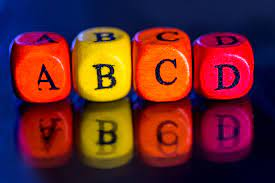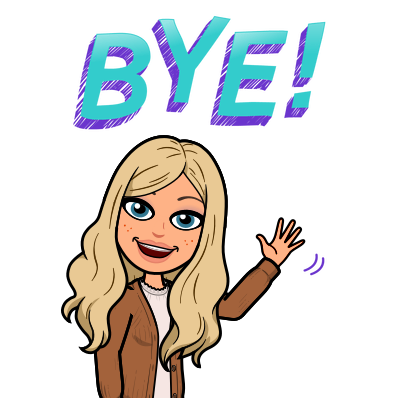Hi! Today I read chapter 4 of the textbook. Come along with me on my journey of reading chapter 4 and let's talk about what I learned!
Outcome
While reading chapter 4, I learned what the term outcome means. The outcome is the knowledge, skills and concepts that the students retain and show and it usually happens at the end of a grade for example; the end of second grade and usually when transitioning to a higher level school such as from middle school to high school.
Objective
The word objective is a statement that teachers make relating to the expected result for the student during an activity.
An example of a learning outcome for students in fourth grade could be: Students will identify explorers who came to Florida and the motivations for their expeditions. - Florida Social Studies Standards SS.4.A.3.1
The learning objective is what the students are expected to accomplish when completing an instructional activity. It is important to have a learning objective when teaching your students because it makes you think what you want your students to get out of the instructional activity.
Behavioral Objectives
What students will do and complete when instruction happens. The main focus is what students will have to complete and how students learning will be assessed. Measurable behavior is the behavior or performance that is seen during the objective.
Example: Students will compare the goals and outcomes of the expeditions of Ponce de Leon, Juan Garrido, Esteban Dorantes, and Tristan deLuna.
Domains!
Today I learned that objectives can appear in 4 different domains! They are known as, cognitive, affective, psychomotor and interpersonal.
Down below is a description of all of the domains!
| Cognitive Domain | Affective Domain |
| Does the student understand the ideas and concepts that are being taught? Can the student apply what he or she has learned appropriately to other situations? Can the student compare what they have learned with other subjects and ideas? Can the student create a new product or adapt an existing product based on his or her learning? Can the student determine the worth of what they have learned and support their judgment? | Has the student had opportunities to learn the ideas and concepts in ways that are meaningful to the learner? Has the student had opportunities to express his or her feelings about what is being learned? Is the learning useful for the student? |
| Psychomotor Domain | Interpersonal Domain |
| Can the student perform the fine and gross motor movements necessary to apply the learning? Does the student have the perceptual skills needed to apply the learning? | Has the student had opportunities to interact positively and productively with others while learning the ideas and concepts? Has the student had opportunities to utilize appropriate social and communication skills while learning? Have the student had opportunities to hear what others think about what we are learning and to tell other students what he or she thinks? |
Audience – the student
Behavior – will use information from their research
Degree – is not stated but is assumed to be with 100% accuracy.
Lower Level Cognitive Objectives | Examples |
knowledge (recall)
| The students will match the names of explorers with the places they explored. In their own words, the students will give the reasons why Spanish explorers came to America. |
Middle Level Cognitive Objectives | Examples |
application
| Students will give examples of places they have explored. Students will compare Spanish explorers and conquistadors. Given characteristics of explorers, students will classify the explorer as English, French, or Spanish. |
Higher Level Cognitive Objectives | Examples |
synthesis
evaluation | Students will create a Glog about an explorer.
Students will write a persuasive essay justifying whether European exploration of the Americas was positive or negative and give reasons to support their position. |
Levels of Affective Objectives | Examples |
receiving
responding
valuing | Students will actively listen to a NASA presentation on reasons for exploring space. Students will tell whether they think tax dollars should be spent on space exploration or on relieving hunger. Students will choose to find out more about earth and space explorers by visiting web sites such as NASA, National Geographic Kids, and Space Kids. |
Psychomotor Objectives | Examples |
basic movements
| Students will walk quietly in a line to the lunchroom. Students will hear a musical note and point to that note on a musical scale. Students will run around the gym two times in one minute. Students will be able to throw a baseball using the correct technique. Students will portray a body stance and facial expression that indicates sadness. |
Examples of Social Skills | Examples of Communication Skills |
Being kind | Actively listening to others |
Interpersonal Objectives | Examples |
social skills
conflict management | Students will contribute ideas to help the group complete its task. Students will use six inch voices when communicating with other members of their group. Students will role play effective and ineffective ways of disagreeing with other group members. |



No comments:
Post a Comment